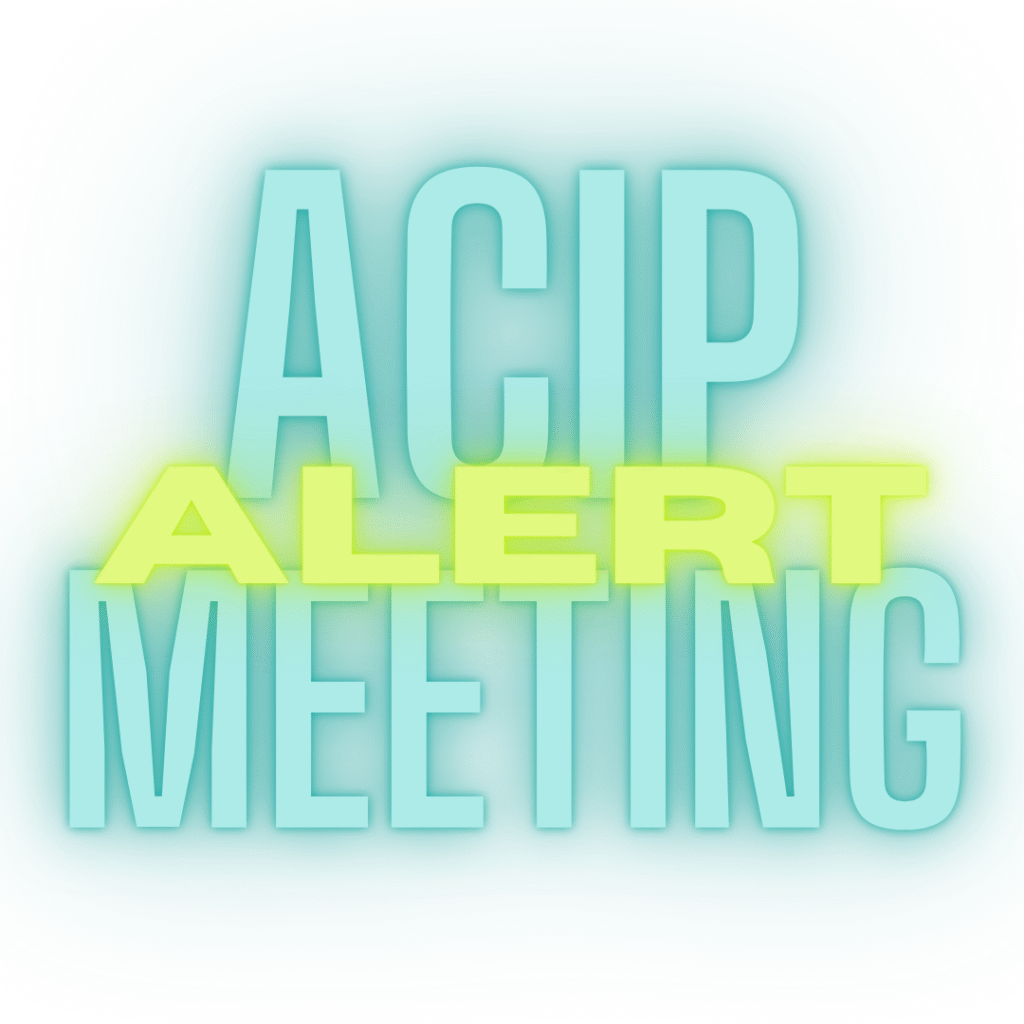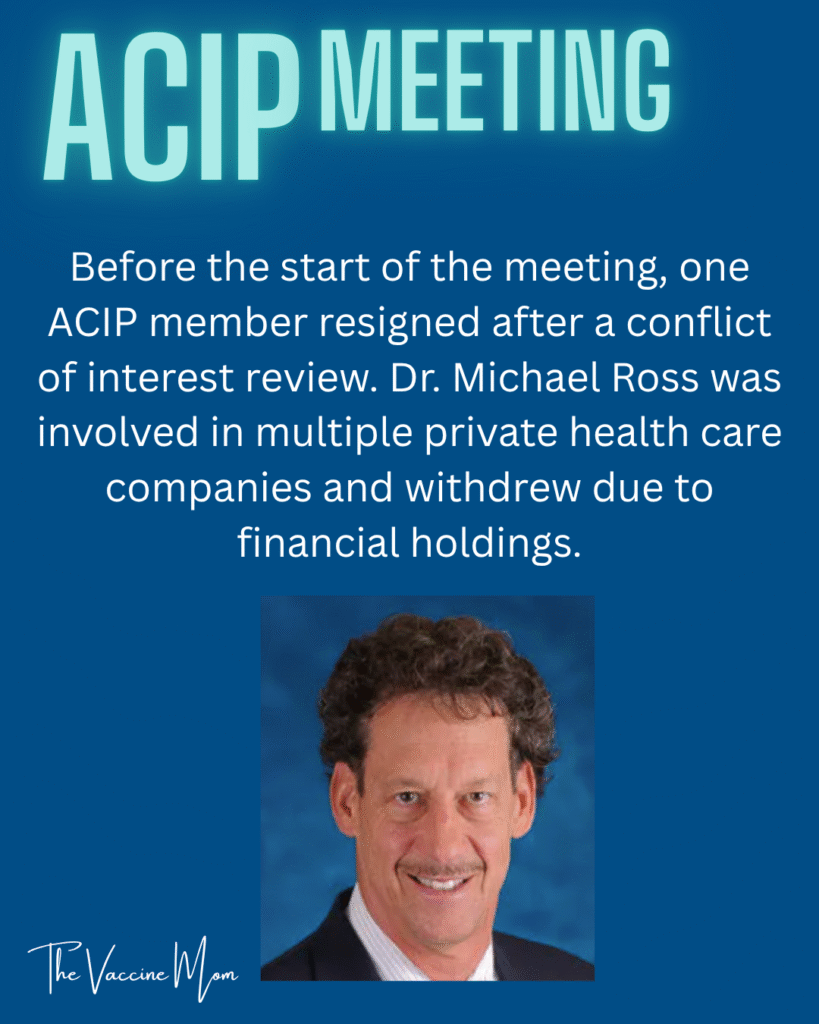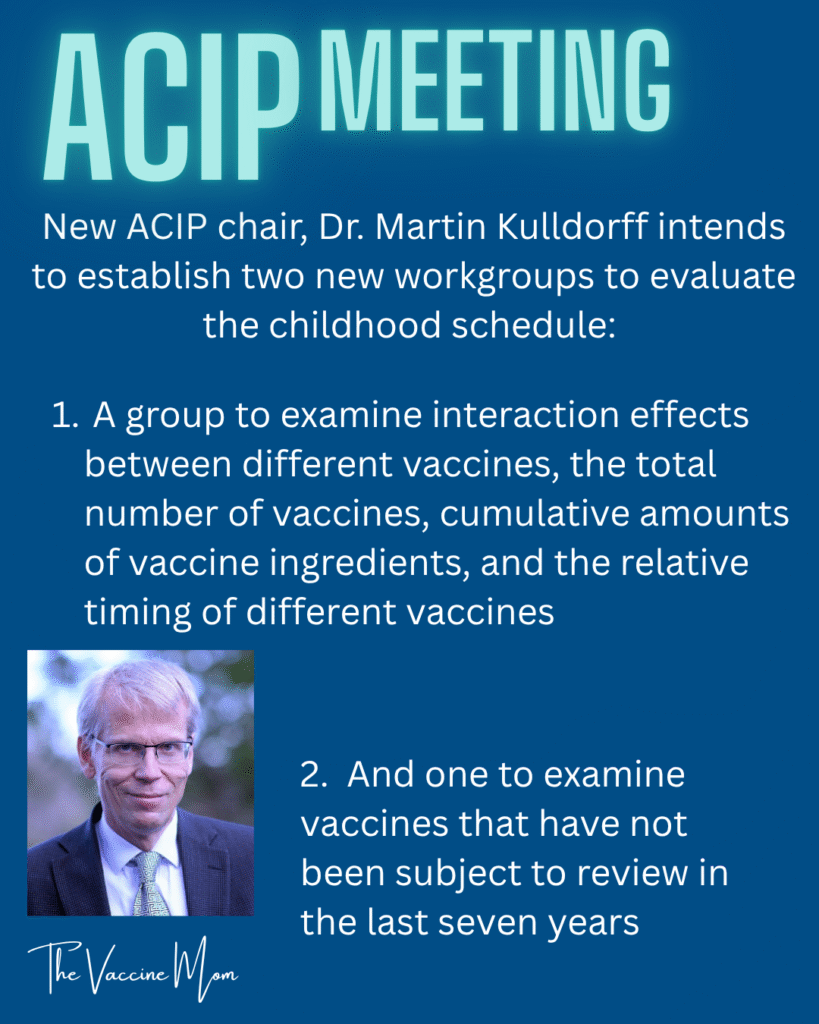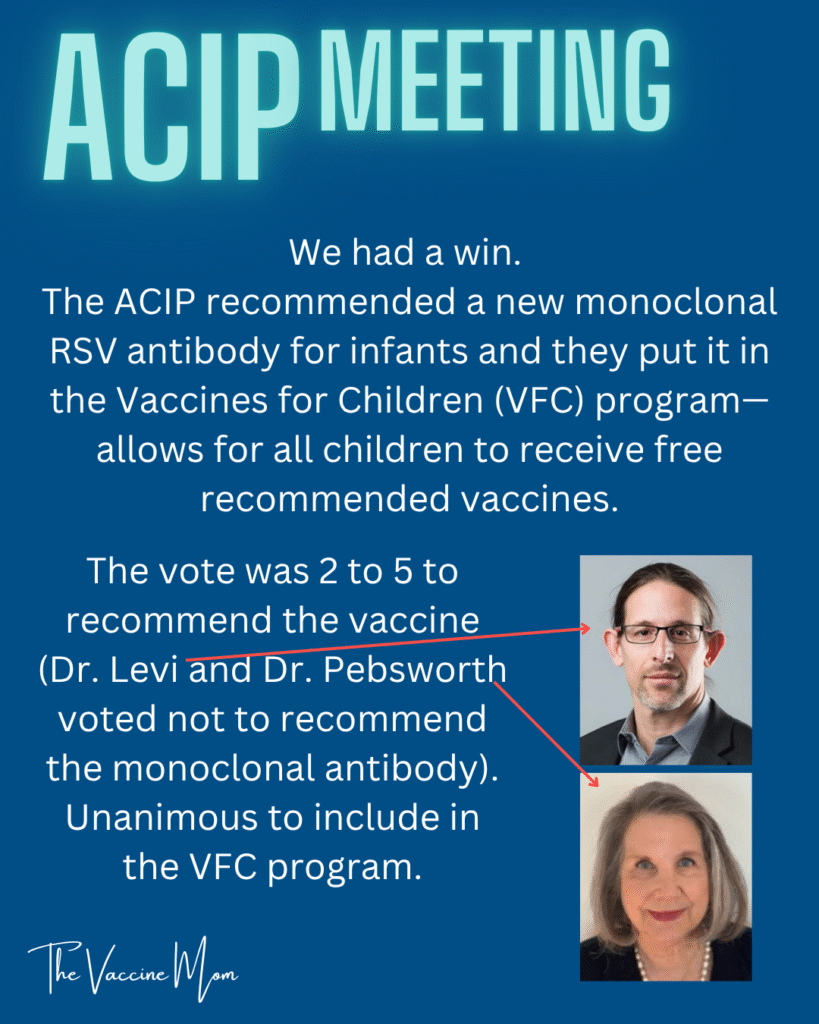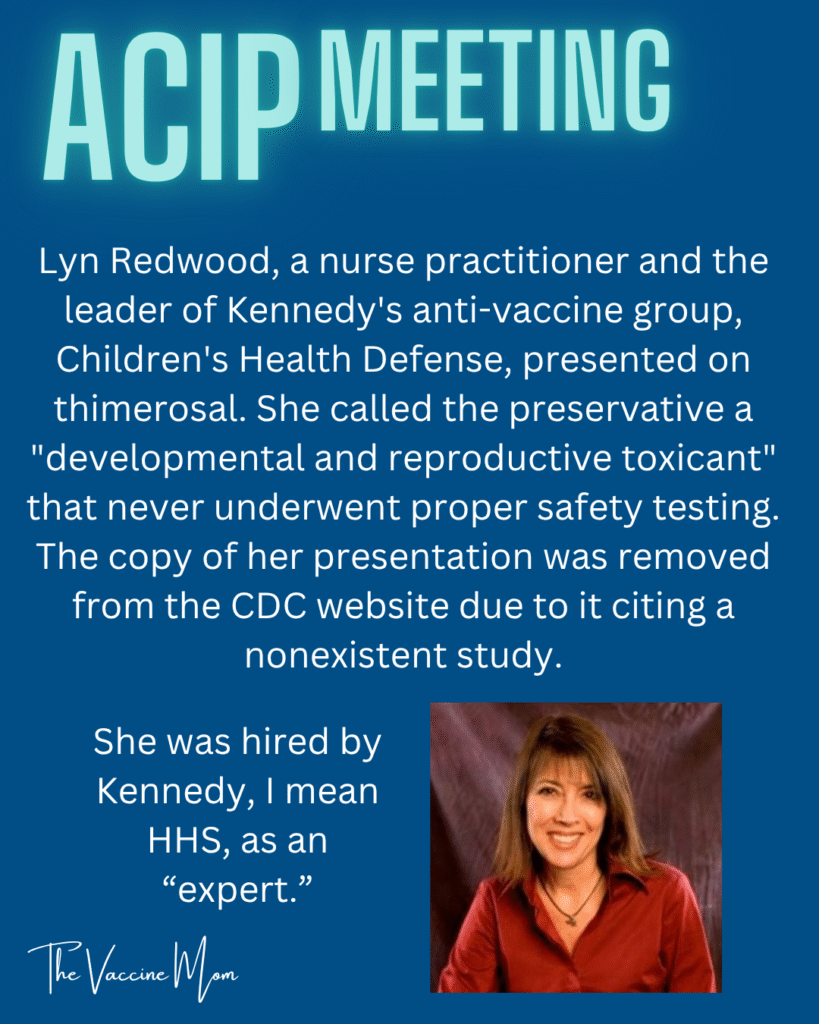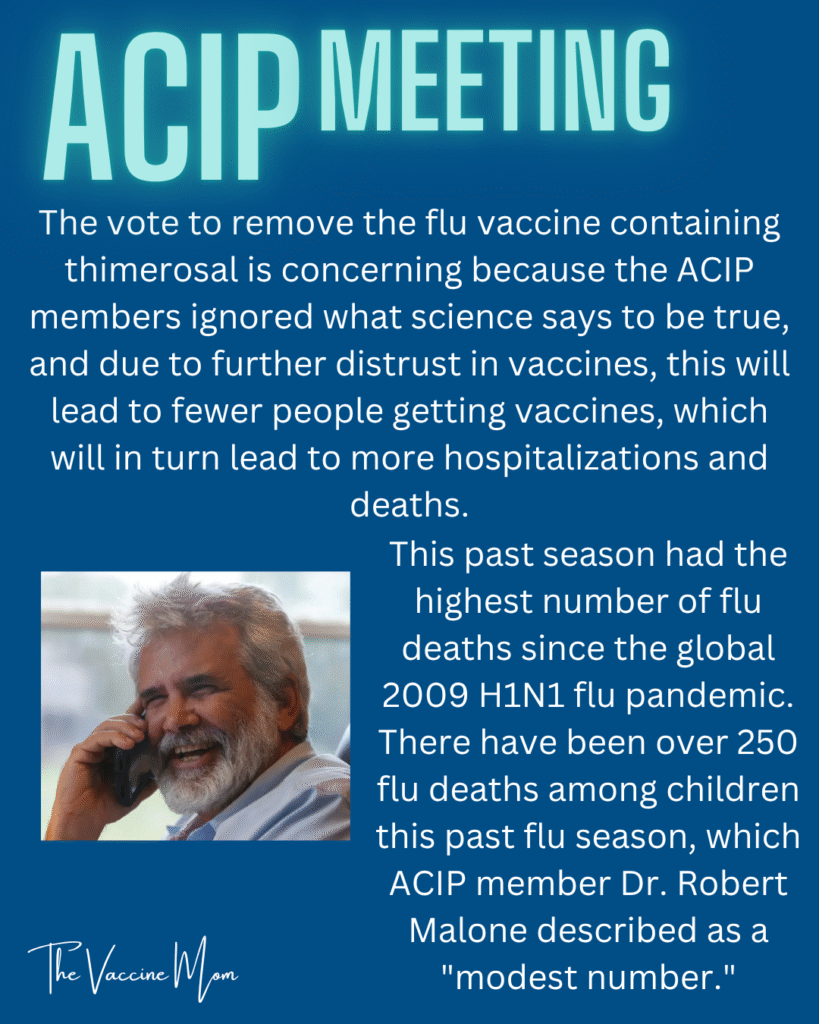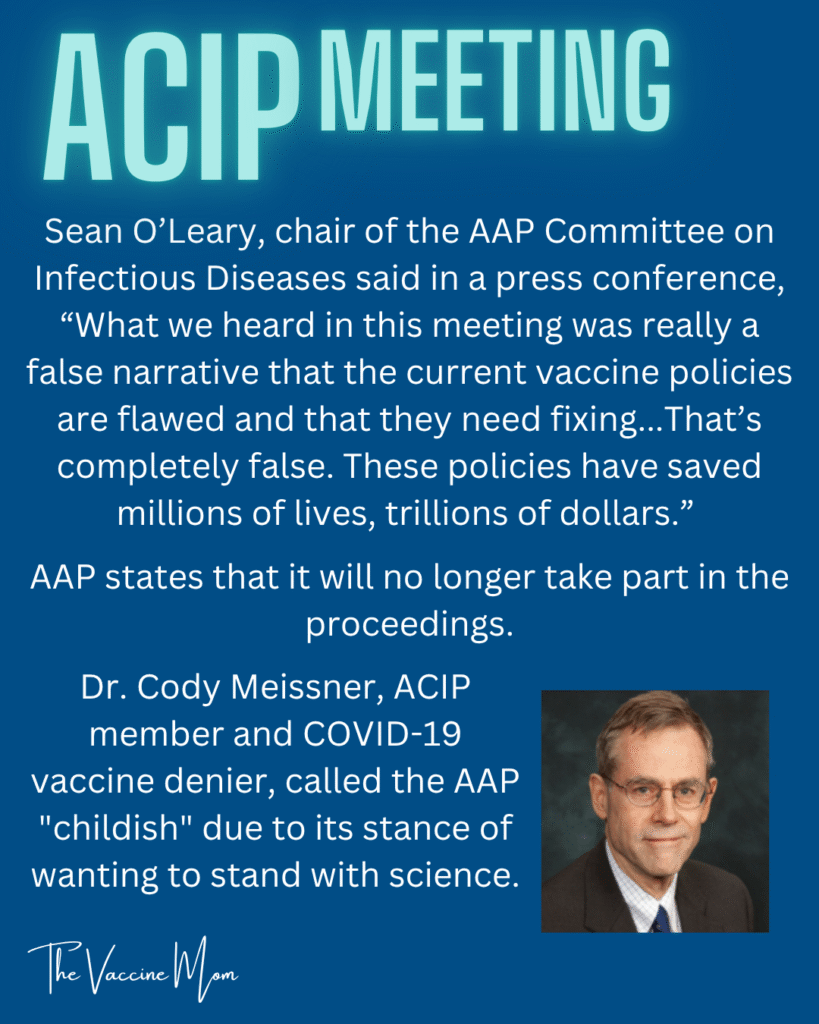Talking Points for the June 25–26, 2025, ACIP Meeting
The Advisory Committee on Immunization Practices (ACIP) is the CDC’s committee of experts that develops recommendations on the use of vaccines in the United States. They hold three regular meetings a year and additional meetings as needed. Learn more about the ACIP.
In an unprecedented move, U.S. Department of Health and Human Services (HHS) Secretary Robert F. Kennedy, Jr., replaced all of the 17 expert committee members with eight new members, over half of whom have anti-vaccine views and conflicts of interest. If you have an Instagram account, see my post with information on each member.
The meeting, originally scheduled June 25–27, was changed to June 25–26, and the original agenda was amended, adding unexpected topics and presentations that inevitably show no scientific basis, unproven theories, and non-existent studies.
Before the start of the meeting, one ACIP member resigned after a conflict of interest review. Dr. Michael Ross was involved in multiple private health care companies and withdrew due to financial holdings.
ACIP Chair
The meeting began with the newly-appointed ACIP chair, Dr. Martin Kulldorff, an epidemiologist who could formerly be found at Harvard Medical School. He called for the need to “rebuild public trust,” and intends to establish a new workgroup to study and evaluate the recommended childhood vaccine schedule, including the “interaction effects between different vaccines, the total number of vaccines, cumulative amounts of vaccine ingredients, and the relative timing of different vaccines.” He says, “The number of vaccines that our children and adolescents receive today exceed what children in most other developed nations receive and what most of us in this room received when we were children.”
False statement.
Kulldorff also stated that he plans for another workgroup to look at “vaccines that have not been subject to review in more than seven years.” Specific topics they will review include:
- Hepatitis B birth dose universal recommendation
- How children are vaccinated against MMRV and chickenpox
- The timing of the measles vaccine to resolve religious objections among some parents
RSV maternal vaccines and monoclonal antibodies
In a surprise move, the ACIP recommended a dose of clesrovimab monoclonal antibody as an option for infants aged 8 months and younger born during or entering into their first RSV season and who are not protected by the maternal RSV vaccine. This is also now included in the Vaccines for Children (VFC) program—a program that guarantees free vaccines included on the recommended schedule for all children.
The vote was 2 to 5 to recommend the vaccine (Dr. Retsef Levi and Dr. Vicky Pebsworth voted not to recommend the monoclonal antibody). And unanimous 7-0 to include in the VFC program.
That’s a win.
Influenza vaccines for the 2025–26 season
The ACIP voted 6-1 to keep the influenza vaccine recommendation for everyone 6 months and older to be vaccinated. The vaccine will include a new A/H3N2 flu virus strain and the same A/H1N1 and B/Victoria strains as we had in the flu vaccines this previous season. All vaccines will be trivalent (three strains).
Also a win.
Vote to remove thimerosal (mercury) from multi-dose flu shot
The ACIP voted 5-1 (one abstained) to only use single-dose flu shots, free from the preservative thimerosal, which is used to prevent the growth of harmful bacteria and fungi—more commonly used in developing and low-income countries. Thimerosal is only found in multi-dose flu vaccine vials, not in any other vaccine in the U.S. The childhood vaccine schedule has not had a vaccine that contains thimerosal since 2001.
Thimerosal has been a target of Kennedy and the antivaccine community for decades, claiming it is a contributor to autism. Science does not support this.
Lyn Redwood, a nurse practitioner and the leader of Kennedy’s anti-vaccine group, Children’s Health Defense, presented on the topic. She called the preservative a “developmental and reproductive toxicant” that never underwent proper safety testing. The copy of her presentation was removed from the CDC website due to it citing a nonexistent study.
Redwood was recently hired by HHS as an “expert.” She delivered her presentation as a private citizen and not a representative of the federal government.
Removing the rarely-used ingredient only affects the multi-dose flu vaccines, and consumers have many choices for their flu vaccines, as is. So, it is what it is. However, the vote showed the panel’s willingness to disregard scientific data, ultimately increasing the public’s distrust in vaccines.
Elaborating on thimerosal
The vote to remove the flu vaccine containing thimerosal is concerning because the ACIP members ignored what science says to be true, and due to further distrust in vaccines, this will lead to fewer people getting vaccines, which will in turn lead to more hospitalizations and deaths.
This past season had the highest number of flu deaths since the global 2009 H1N1 flu pandemic. There have been over 250 flu deaths among children this past flu season, which ACIP member Dr. Robert Malone described as a “modest number.”
Dr. Jason Goldman, a liaison for the American College of Physicians (ACP), pushed back during the meeting, saying, “(It) is not a small number, especially if it’s your own child dying from the vaccine-preventable illness.”
The childhood vaccine schedule is now at risk
The ACIP Chair is calling for a new workgroup to evaluate the childhood vaccine schedule—one that is already among the most rigorously tested and studied. There will be an investigation into the cumulative effects of vaccines on children and adolescents, and following, the ACIP will consider new recommendations.
Major medical associations are boycotting.
Sean O’Leary, chair of the American Academy of Pediatrics Committee on Infectious Diseases said in a press conference, “What we heard in this meeting was really a false narrative that the current vaccine policies are flawed and that they need fixing…That’s completely false. These policies have saved millions of lives, trillions of dollars.”
The AAP states that it will no longer take part in the proceedings because they are no longer credible.
Dr. Cody Meissner, ACIP member and COVID-19 vaccine denier, called the AAP “childish” due to its stance of wanting to stand with science.
What happens if the schedules change?
Should the vaccine schedules change, insurance companies, Medicaid, the VFC program, and Medicare may not cover vaccines that are not recommended, leaving patients having to pay out of pocket. This will lead to a lower uptake of vaccines, a decrease in herd immunity, and an increase in disease, hospitalizations, and deaths.
This doesn’t just affect the U.S. Disease travels the world quickly, as we saw with the COVID-19 pandemic. There are still many places in the world that do not have access to vaccines. Disease will spread far and wide.
Of note, two associations representing payers have stated that they are committed to providing access to vaccines:
Future ACIP meeting
The next ACIP meeting is scheduled for October 22–23, 2025, but according to the meeting web page, there may be meetings in August/September, which is concerning.
Resources
- Archived CDC recommended schedules (prior to meeting) in PDF form
- Final meeting agenda
- Presentation slides
- Video recording of June 25
- Video recording of June 26
- ACIP meeting information (upcoming meetings and meeting materials)
- CIDRAP Vaccine Integrity Project
- NFID’s “Experts Sound Alarm after ACIP Members Removed”
WHAT CAN YOU DO?
- Visit SAFE Communities Coalition, the nation’s first pro-vaccine political advocacy organization
- Visit Vaccinate Your Family’s Take Action page to get involved
- National Network of Immunization Coalitions’ member list can help you locate a coalition near you to support or volunteer
- Contact your local health department through NACCHO to see if there’s anything you can do to support vaccinations
- Donate to a vaccine activism or vaccine education organization that has the power to do more. My name is Taryn, The Vaccine Mom, and I have been working in this space with many organizations for a decade and a half, so please feel free to reach out to me for recommendations or with questions at [email protected].

